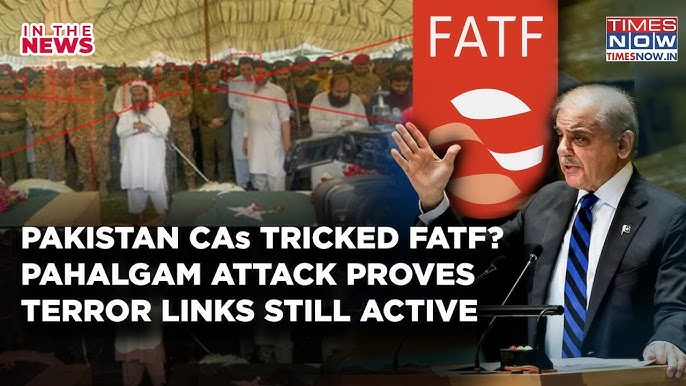
Following the execution of Operation Sindoor, India is preparing to submit new evidence to the Financial Action Task Force (FATF) highlighting Pakistan’s involvement in supporting terrorism. The operation, a series of targeted strikes on terrorist infrastructure in Pakistan and Pakistan-occupied Kashmir, was in response to the Pahalgam terror attack on April 22, which resulted in the deaths of 26 individuals, primarily tourists. Foreign Secretary Vikram Misri confirmed that the evidence gathered from the operation, including communication nodes linking terrorists to Pakistan, will be presented to the FATF to underscore Pakistan’s continued support for terror groups like Lashkar-e-Taiba (LeT) and Jaish-e-Mohammed (JeM).
Pakistan’s Diplomatic Response: Bilawal Bhutto to Lead Peace Talks
In response to India’s diplomatic outreach, Pakistan has announced the dispatch of a “peace” delegation abroad, led by Foreign Minister Bilawal Bhutto-Zardari. This move appears to be an attempt to counter India’s successful global outreach, where seven multi-party delegations were formed to brief international leaders about India’s counter-terrorism efforts and its united domestic stance on combating cross-border terrorism.
International Reactions and India’s Strategic Outreach
India’s swift diplomatic efforts following Operation Sindoor involved briefing key international partners, including the United States, the United Kingdom, Saudi Arabia, the United Arab Emirates, and Russia, about the strikes and the evidence linking Pakistan to the Pahalgam attack. National Security Advisor Ajit Doval engaged in discussions with U.S. Secretary of State Marco Rubio, emphasizing that only known terror camps were targeted, with no civilian, economic, or military targets hit in Pakistan. This outreach aims to prevent Pakistan from controlling the narrative and to garner international support for India’s stance on counter-terrorism.
India’s Stance on Terrorism and International Cooperation
India has made it clear that any future terrorist attack on its soil will be treated as an “act of war” and will face a strong response. This marks a significant shift in how the country plans to handle terrorism, especially when it believes such acts are supported or planned from across the border. Furthermore, India has raised concerns at international platforms, such as the International Monetary Fund (IMF), about Pakistan’s misuse of financial assistance to support military-intelligence operations and terrorist groups.
Conclusion
The developments following Operation Sindoor signify a pivotal moment in India-Pakistan relations, with both nations engaging in diplomatic efforts to present their perspectives on the issue of cross-border terrorism. India’s submission of new evidence to the FATF and its strategic outreach to international partners underscore its commitment to combating terrorism and holding Pakistan accountable for its actions. As the situation unfolds, the international community’s response will play a crucial role in shaping the future trajectory of regional security and cooperation.








































Leave a Reply